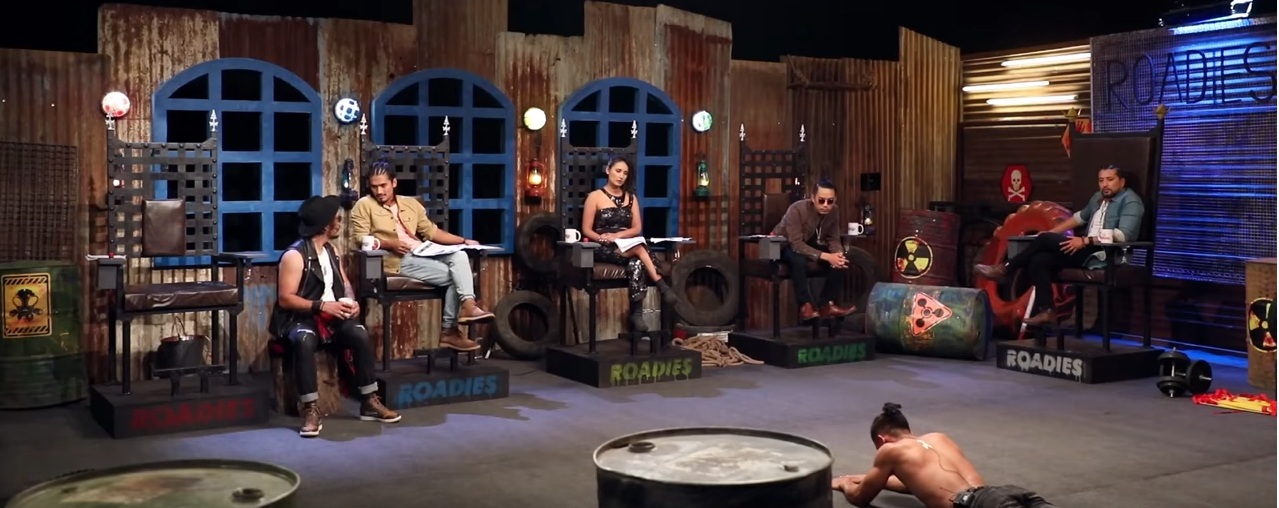Entertainment
Reality game shows are redefining Nepali television
How Nepali producers are bringing in quality work through franchise shows and drawing dedicated viewership..jpg&w=900&height=601)
Shashwat Pant
Kirshna Bahadur Thapa Magar, his wife, daughter and son never miss an episode of Comedy Champion, a Nepali comedy reality show that started airing a few months ago.
An entire family sitting together and watching a television show is a rare sight. But they are becoming more common because of reality-based TV game shows, such as Comedy Champion.
“This is a fun show. The content quality is also great. If we have a Nepali show that offers us the same form of entertainment as say an Indian show, we will watch a Nepali show,” says 57-year-old Magar.
Comedy Champion is one of the latest additions to a host of franchise reality shows that are currently being aired in Nepali television. As a result of the airing of these shows, such as Himalaya Roadies, Nepal Idol, Ko Bancha Crorepati (KBC) and The Voice, the television watching culture has somehow changed in Nepal.
Magar says that franchise shows, which started to air on television since 2017, is one of the reasons why he and his family started watching Nepali channels. While he did try to watch Nepali shows like Nepal Tara and Nagad Paanch Lakh, he says both the shows lacked quality.
“The set was poorly designed, and the content was weak. They were nothing compared to what is aired on Nepali television currently,” says Magar.
The producer and director of Himalaya Roadies Aman Pratap Adhikari feels that this surge in reality-based television shows is part of a global phenomenon. “It’s a phase. Reality game shows are hit everywhere in the world,” says Adhikari. From American Idol to The Bachelor, number of people watching these shows are huge, he says. And the same is the case with Nepal. “People are used to watching these shows on the TV or on the internet. And that is why I feel that the shows are so successful in Nepal,” he says.
He further adds that this is a great chance for Nepali television to reinvent itself. “For the longest time, Nepali television has always been about news. People particularly watched a lot of it during the insurgency period, then some people got tired of news and started watching Hindi soap operas. But the kids who have grown up never had anything to watch on Nepali channels.”
Then, as more and more homes started connecting to the internet and were exposed to shows like the American Idol, Britain’s Got Talent, MTV Roadies and Who Wants to be a Millionaire, they wanted to see similar shows on Nepali TV. But the channels were not up for the task.
“When I first approached Nepali channels with a new show which could do both singing and dancing, they ridiculed me,” says a television producer on the condition of anonymity. “They told me that no one would watch the show. Now the same channel is aiming to bring Nepal’s Got Talent. Times have definitely changed,” he adds.
One of the producers at Comedy Champion, Bishal Bhandari, agrees. When he took the idea to a few channels not many bought the proposal. Then there was also the problem with sponsors who, he says, didn’t believe that they could pull it off.
“Everyone questioned if the show could bring in views let alone advertising. It was tough in the beginning. Which is why we took a big risk and bought airtime from Kantipur Television. Thanks to the audience our risk has paid off,” says Bhandari.

Bipin Acharya president of SRBN Media, the company which brought Ko Bancha Crorepati, also shares the same view. When he told sponsors that he was bringing KBC, not many were supportive.
“A lot of people told me to my face that this would fail. But our team was confident that it would do well,” says Acharya. “It was tough, but thanks to the team and the love of the audience, we were able to pull it off.”
Adhikari says that the reason why TV shows have done well is because of producers like Bhandari and Laxman Paudel, producer and director of Nepal Idol, who thought outside the box.
“I studied media production in Edinburgh and Laxman in Mumbai. We learned how to make these international shows there. We learned what it took. It was so different to what we were doing here in Nepal,” says Adhikari.
Bhandari who worked with Paudel during Nepal Idol’s first season also agrees. He feels that the production knowledge Adhikari and Paudel were instrumental in making the show a success.
“We were never vigilant towards our audience’s interest. The franchise shows taught us a lot about production value. But the main thing we were taught was to stop treating the audience like idiots. We couldn’t do it anymore,” says Bhandari.
Acharya also hails the people who brought franchise shows to Nepal. “It taught us a lot. The team that came to oversee things in Nepal taught us professionalism, time management and everything about how production works,” says Acharya. “They showed us how to make shows for half the budget than in countries like India or in England.”
And that has helped a lot. Comedy Champion has racked up a lot of fan following over the course of the four month since its start. Bhandari says that up to 100,000 people watch their show live on YouTube alone.
In fact, these shows have not only amassed huge fan following, they have also garnered immense popularity, both on television and on YouTube. The average views for shows like the Voice Nepal is 1.5 million, while shows like KBC, Roadies and Nepal Idol have between 500,000 and 1 million views—per episode.
“The numbers we get after the premier makes us extremely grateful to our audience. We would be nothing without them,” says Bhandari.
Other shows, which aren’t franchise-owned, have also been doing well. Take Lok Star for example. The folk song singing competition has amassed over 500,000 views on most of its episodes.
“The quality of that show is amazing. It’s not only giving a platform to emerging folk artists, but it’s also entertaining us,” says Prateek Regmi, a cab driver based in Kathmandu. “The grand finale was not far behind any of the popular shows that air in Nepali channels. I’d say it was nearly as good as Indian singing competitions.”
Looking at the popularity of these shows, more are soon on the way. Nepal Television is bringing a new singing show called the Wai Wai Star while there are also talks of international franchises like Big Boss, Splitsvilla and Dancing with the Stars being brought to Nepal.
“Times are quite good right now. But we need to do more. We’ve been able to produce some really good content so far. The audience liked it and I hope people will continue to love what we Nepali producers create,” says Adhikari.




 11.12°C Kathmandu
11.12°C Kathmandu










